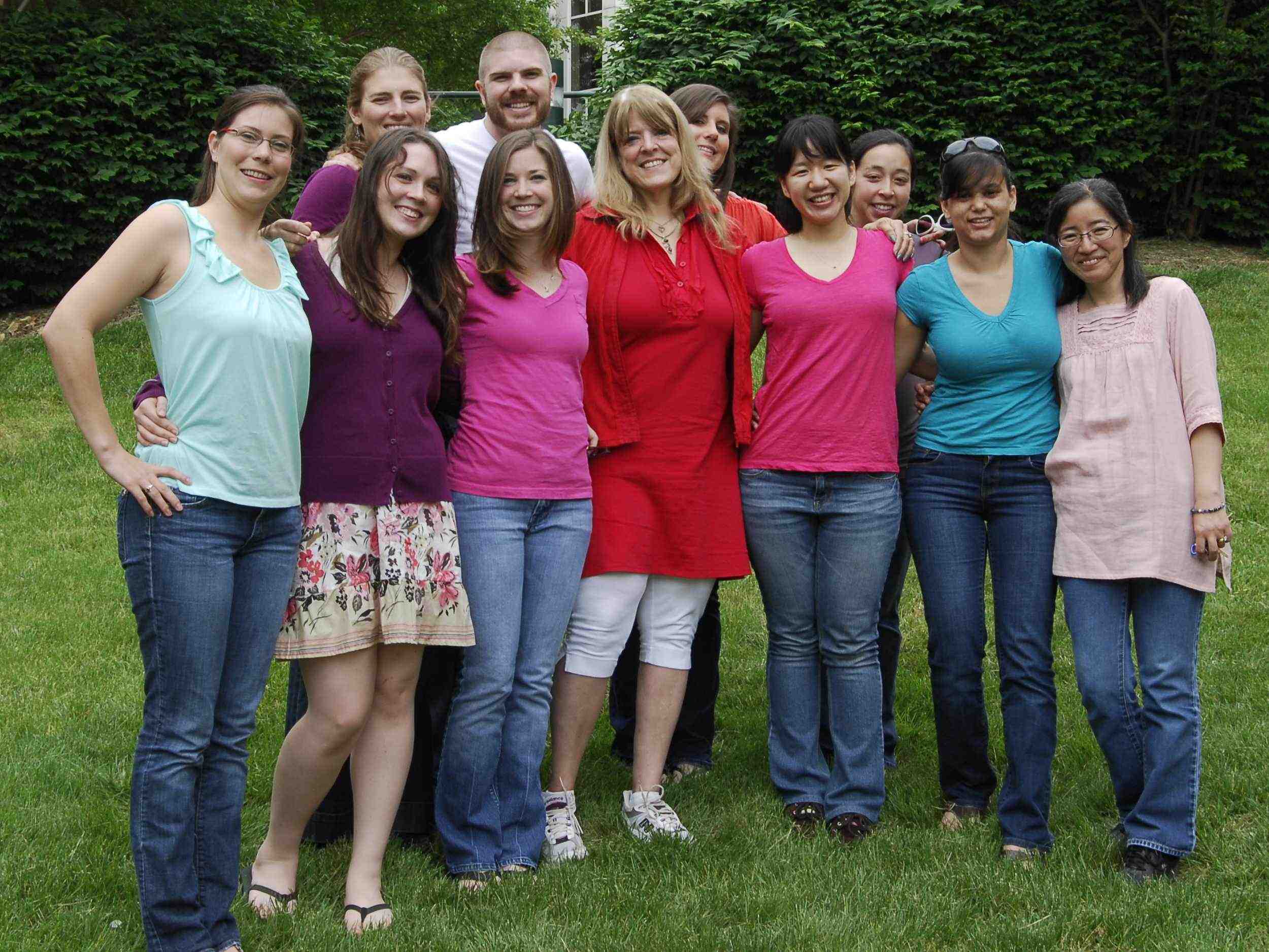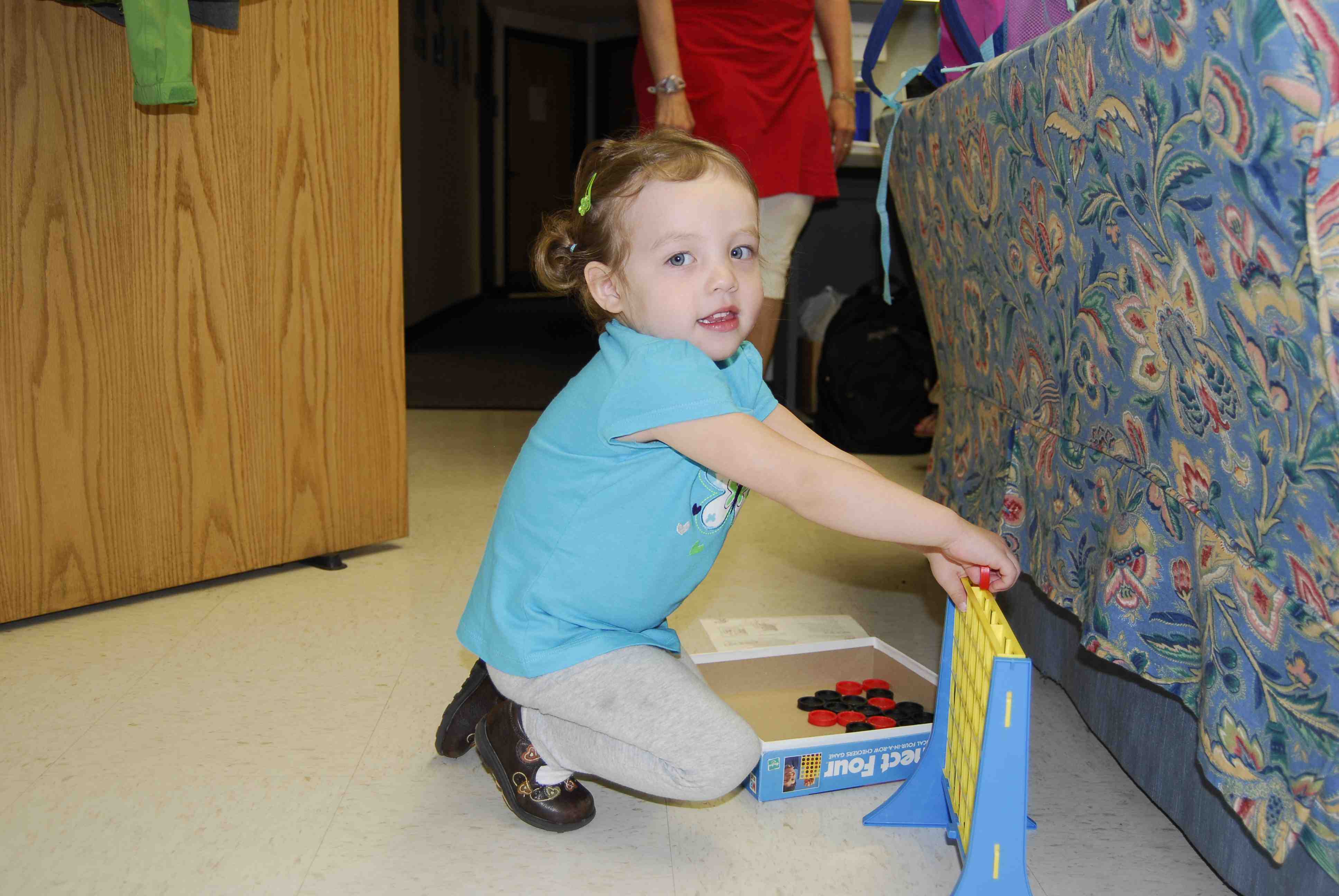

Theses and Dissertations
- Liverette, K. H. (2016, Spring). Do
teachers observe the same social-emotional exchanges in the
classroom as researchers? Ph.D. Dissertation.
- Karalus, S. P. (2016, Spring). Creating
a structural measurement model of socialization of
social-emotional competence: The contribution of CLASS and
FOCAL-T. Ph.D. Dissertation.
- Ferrier, D. E. (2016, Spring). The
contribution of cognitive self-regulation to social competence:
A latent change score analysis. Ph.D. Dissertation.
- Watanabe, N. (2015, Spring). Parental
socialization of emotion in Japan: Contribution to preschoolers'
emotion knowledge. Ph.D. Dissertation.
- Fettig, N. B. (2015, Spring). Temperament
and emotion regulation: Predicting social competence,
internalizing, and externalizing behavioral outcomes.
Ph.D. Dissertation.
- Howarth, G. Z. (2014, Spring). Temperament
and emotionally regulated reactions to problem situations in
preschool classrooms: An exploration of the moderating effects
of emotion knowledge. Ph.D. Dissertation.
- Bailey, C. S. (2014, Spring). The
socialization of emotion regulation in preschool classrooms.
Ph.D. Dissertation.
- Plourde, S. (2013, Fall). The
association of teacher emotional expression and reactions to
emotions and toddler emotion interactions with peers.
M.A. Thesis.
- Herndon, K. (2013, Summer).
Age differences in emotion regulation in toddler and preschool
classrooms. M.A. Thesis.
- Zinsser, K. (2013, Spring). Early
childhood education directors’ impact on social-emotional
teaching and learning. Ph.D. Dissertation.
- Wyatt, T. (2013, Spring). Self-regulation
in preschool children: Hot and cool executive function as
predictors of later classroom learning behaviors. Ph.D.
Dissertation.
- Thayer, S. K. (2012, Fall). Early
social-emotional competence: Preschool and kindergarten
predictors. Ph.D. Dissertation.
- Fettig, N. B. (2012, Spring).
Children’s emotion regulation during a disappointment: The
moderating roles of emotion reactivity and gender. M.A.
Thesis.
- Shewark, E. (2012, Spring).
Learning forgiveness: The influence of interparental conflict on
child forgiveness. M.A. Thesis.
- Watanabe, N. (2011, Spring).
Forgiveness in Japanese children and adolescents: Dispositional,
emotional, and parental influence. M.A. Thesis.
- Brown, C. (2011, Spring).
The association between social-emotional competence and
children’s academic readiness. Ph.D. Dissertation
- Zinsser, K. (2010, Spring).
Expression as prevention: Modeling the role of family emotion
expression in breaking the connection between temperament and
adolescent substance use. M.A. Thesis.
- Tarpey, E. (2010, Spring).
Preschoolers’ knowledge of specific emotions. M.A.
Thesis.
- Segal, Y. (2010, Spring).
Contemporary and longitudinal relations between preschoolers’
emotion regulation and their social behavior. Ph.D.
Dissertation
- Morris, C. S. (2010, Spring).
Emotionally competent caregiving: Relations among teacher-child
interaction patterns, teachers’ beliefs about emotions, and
children’s emotional competence. Ph.D. Dissertation
- Mahoney, A. (2010, Spring).
Aggression in preschool and predictions of peer reactions: How
do children expect their peers to feel in response to their
behaviors? M.A. Thesis.
- Caswell, C. (2009, Spring). What
am I feeling? Using television to effectively teach emotion
knowledge to preschoolers. Ph.D. Dissertation
- Mincic, M. (2008, Fall). Dialogic
reading with emotion-laden storybooks: Intervention methods to
enhance children's emergent literacy and social-emotional
skills. Ph.D. Dissertation
- Caal, S. (2008, Spring). Adolescent
sexual development: Contextualizing a cognitive process in the
decision to engage in protective or risky sexual behavior.
Ph.D. Dissertation
- Sarampote, N. (2007, Spring). The
sibling relationship and its contribution to social and
emotional competence in middle childhood. Ph.D.
Dissertation
- Hamada, H. H. (2007, Spring). Individual
differences in children’s forgiveness: Intraindividual,
parental, and family environmental contributors. Ph.D.
Dissertation
- Mason, T. (2006, Fall). The
relationship between adult attachment security and emotion
regulation strategies. Ph.D. Dissertation
- Mincic, M. (2006, Spring). Children’s
perceptions of parental behaviors as moderators of relations
between parent-child attachment and emotional parent-child
communication. M.A. Thesis.
- Caverly, S. (2006, Spring). The
contribution of siblings to children’s social competence.
Ph.D. Dissertation
- Neal, K. L. (2005, Fall).
The relationship between children’s propensity to forgive,
parents’ propensity to forgive and parenting practices.
Ph.D. Dissertation
- Hackney, R. (2005, Spring).
Parents' discipline styles, children's verbal IQ and prosocial
behaviors. Ph.D. Dissertation
- Strnatka-Knapp, V. (2003, Summer).
Autonomy, social support, and psychological adjustment in
learning disabled and non-learning disabled college students.
Ph.D. Dissertation
- Blood, T. (2002, Summer).
The affective self-regulation of anger and its effects on
parenting. Ph.D. Dissertation
- Kochanoff, A. (2001, Summer).
Attachment, discipline, and emotion understanding. Ph.D.
Dissertation
- Blair, K. (2000, Spring).
Emotion regulation and aggression: a function of coping style
and emotionality. Ph.D. Dissertation
- Aux, K. (2000, Spring).
Maternal affective communication and parenting behavior:
Mechanisms for intergenerational transmission of attachment in
preschoolers. Ph.D. Dissertation
- Queenan, P. L. (1999, Fall).
Gender differences in the socialization of social and emotional
competence in preschool aged children. Ph.D. Dissertation
- Wheeler, D. (1999, Summer).
Fantasy proneness and attachment style: A mediation model of the
development of psychopathology. Ph.D. Dissertation
- Sears, R. D. (1999, Spring).
Relations among family environment, peer interactions, social
cognition, and social competence: Predicting aggressive
behavior. Ph.D. Dissertation
- Schmidt, M. E. (1998, Spring).
The relations of security of attachment to emotional competence
and later social competence. Ph.D. Dissertation
- Sadovsky, A. (1998, Spring). Perseveration
of gender stereotypes in young children’s toy choice.
M.A. Thesis.
- Auerbach-Major, S. (1997, Summer).
Temperament and parental discipline: Main effects and moderating
factors. Ph.D. Dissertation
- Sawyer, K. S. (1996, Fall).
Sibling contributions to young children’s emotional competence.
Ph.D. Dissertation
- Mitchell-Copeland, J. (1996, Spring).
Teacher-child attachment and social competence. Ph.D.
Dissertation
- Cody, D. A. (1995, Spring).
Play assessment of cognitive development of delayed
preschoolers. Ph.D. Dissertation
- Menotti, A. M. (1992, Summer).
Maternal cognitive factors and ratings of child behavior as
predictors of mothers' control strategies in interaction with
their preschool children. Ph.D. Dissertation
- Happ, L. K. (1991, Fall).
The response of first-born children to the birth of a sibling: A
short-term longitudinal study. Ph.D. Dissertation
- Kowalski, F. S. (1990, Fall). Social
cognition and preschoolers at risk for conduct disorder.
M.A. Thesis.
- Bouril, B. H. (1988, Fall).
The importance of definition and perspective in evaluating
preschoolers' social competence. Ph.D. Dissertation

